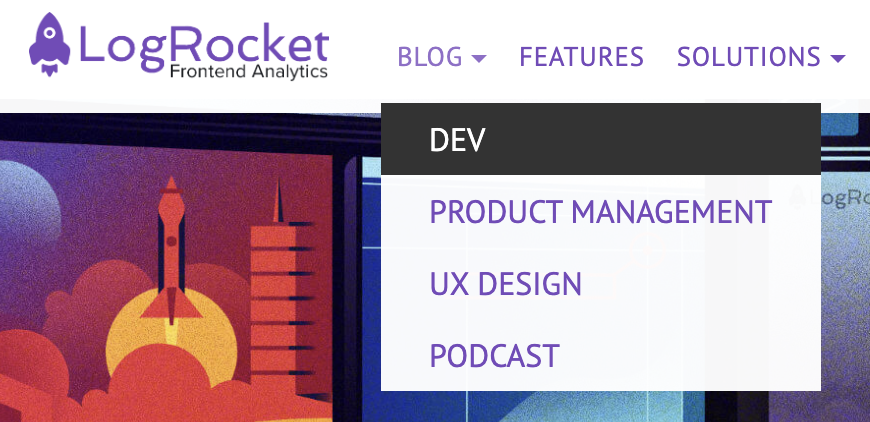For 15 years, I’ve been producing technical content professionally. Believe me, I’ve made all the mistakes many times over. I’ve written to SEO keywords I barely understand, I’ve overly promoted products, and I’ve taken the next random topics off the stack without a thought as to why I’m writing it. And I’d like to save you the futile effort.
The last five years with EveryDeveloper clients have taught me the importance of strategic content. In this post, I’ll share an approach that will help you side-step the potholes on your technical content journey and produce better-performing content as you go.
I want to invite you to think in Content Concepts, rather than lowly topics.
With Content Concepts, you will:
- Publish more successful content
- Easily identify your next topics
- Produce less content overall
And yet, in our experience, your lower volume of targeted content will perform better than a higher volume of that top-of-the-stack, reactionary content.
What’s a Concept (And Why It’s Not a Topic)?
Have you ever talked with friends about the restaurant they dream to start? Or maybe you are the future restaurateur. When the would-be proprietor describes their place, it’s rarely in the generic. There’s likely a spin to what would make this eatery different from all the others.
There’s a name for that in hospitality: a restaurant concept. A taqueria is generic. Chipotle is a concept.
That same notion translates to technical Content Concepts. There’s more to them than topics.
Your list of blog post topics is haphazard. There may be a few winners, but they aren’t obvious. They’re anonymous islands in a sea of content.
Content Concepts are not single blog posts or one-off missives.
They are any collection of content on the same theme.
A Content Concept can be:
- A series of blog posts
- A deep educational guide
- A section of your site
- A category in your docs
A concept is not a topic because a concept contains topics. It’s a larger idea within which you can find many different takes, all with a similar theme.
“Use Your API Key in Python” is a topic. “Python Authentication Best Practices Series” is a concept.
Think bigger, think broader, or think more specific.
Concepts Make Content More Impactful
You may have volume publication goals. Consistent publication is an important skill for any content marketing team. Yet, we all agree that not every piece of content is equally valuable. Too much focus on the volume of your publication can lead to vanity-driven developer marketing.
Content Concepts encourage you to take aim—in collaboration with other team members—to ensure your content is strategic.
You can take your existing topic list and try to identify its concept (or concepts). For example, maybe you have a piece on “Using D3.js with React.”
The concept for this post might be:
- Frontend JavaScript Libraries Article Series
- React Visualization Library Article Series
- Data Visualization on the Web Guide
- Charting Data Article Series
Any of these concepts could include the D3 topic, but would also contain many more potential topics. That guide concept could become a core part of your marketing strategy.
But only if the Content Concept aligns with that strategy. Usually, we identify concepts before topics, because you’re more likely to generate valuable concepts this way.
In Technical Content Strategy Decoded, I write about how we recommend clients build a “Concept Catalog.” In this repository of concepts, you’ll answer three questions that help you prioritize potential concepts:
- Why is this concept important?
- What will this concept cover?
- How does it connect to our product?
Together, these answers make an argument for each concept. Random topics are like lottery tickets—maybe they pay off, but you can’t count on them. Content Concepts, in contrast, are investments. These questions help you make prudent investment decisions.
Here’s an entry for one of the concepts above:
React Visualization Library Article Series
React is the most popular front-end JavaScript framework, used by over 40% of respondents to StackOverflow’s latest survey. This article series will cover popular visualization libraries, including D3, ApexCharts, and HighCharts, which don’t always have native React support. Readers of these topics will likely be interested in our frontend analytics product.
Notice how the first question requires you to explain why the concept will attract your audience. The final question explains why that audience will be interested in your product.
When you answer these questions, you naturally begin to see which concepts make a better case for investment.
Concepts Make Clear What You’re About
When you publish a bunch of disconnected blog posts, you may be planting seeds for future traffic. But those seeds won’t necessarily grow into the sort of planned garden you’d expect. The result is more likely to be various plant varieties and a bunch of weeds. From the outside, it’s unclear what type of garden you’re planting.
Visitors start with consuming a single piece of content, likely via referral or search. However, your goal should be to have them engage with multiple pieces of content. That’s more likely to happen when you have multiple related pieces to interlink.
Content Concepts help you plan the mix of seeds you plant. It will be clear to visitors, as well as your team, what type of content you produce. In other words, it will be clear what your content is about.
One way to get clarity is to imagine that your concepts must represent an entire category within your blog. What’s important enough that you’d broadcast it in a dropdown or tabs across the top of your blog?

You don’t have to make your concepts public in this way. It’s more of a thought experiment to help you see how concepts tell your audience what your product is about.
The content you choose helps cement your product’s positioning. If you’re a tool for senior engineers, it doesn’t make sense to include introductions to early programming topics. That could weaken your positioning. On the other hand, if you provide data analytics, it might make sense to include data transformation concepts, because it complements your positioning.
Concepts allow you to very clearly show what’s important—what you’re about—with focused, strategic content.
Concepts Give You Multiple Shots
One pushback I hear about Content Concepts is that more topics give you more opportunities to attract an audience. In investment terms, there’s diversification in random, shot-in-the-dark, next-off-the-stack publication. That’s true and would be a reasonable argument if your goal is to attract all of the internet to your product.
You want to attract the right audience to your product. Content Concepts help you identify the translation layer between what the audience wants and what your product provides. It’s why middle-of-funnel content performs so well with technical products.
Imagine you’re trying to reach a target. Would you rather take aim multiple times at the same target or multiple targets? Additional shots at a single target allow you to adjust between shots and have a greater chance of a bullseye.

Content Concepts provide the target. Each individual piece of content within a concept is your shot. No two pieces are the same, of course, taking a slightly different approach along similar lines. For example, your product may integrate with CI/CD pipelines, so a concept could be comparisons of the various options.
Topics within this concept could include:
- Continuous Integration Comparison: Jenkins, Travis, and Circle
- Jenkins vs Travis for Continuous Integration and Delivery
- When to Use an External CI/CD Tool Instead of GitHub
- How to Use Webhooks with CI/CD Tools to Improve Your Workflow
And that’s just the start. This concept could inspire many, many more individual topics. It’s only worth the effort to produce these and more topics like them because you’ve considered many concepts and made the argument—to yourself and others—that this one is valuable.
Each topic can link to others where relevant. Often one or two primary pieces become the hub that receives links from most posts within the concept. Each topic can focus on a specific area, often collecting traffic from long-tail keywords. Then, your technical audience engages with the initial piece and has one or more obvious next steps to related content.
Get Feedback on Your Concepts and Strategy
The concept of Content Concepts is, admittedly, a large one. I’ve written two books so far in an attempt to help you reach more of the right technical audience.
As you explore your Content Concepts, you may want advice and feedback from someone who has been there before. Our Technical Content Accelerator can be the guide you and your team need.
You’ll create a Concept Catalog and Technical Content Strategy to attract, engage, and convert more of the right technical audience.
And you’ll have direct access to the EveryDeveloper team, which has worked with many great technical content teams to create and refine their strategies.
Find out how the Technical Content Accelerator can improve your content program.